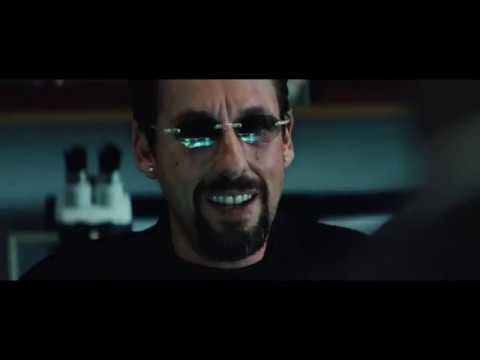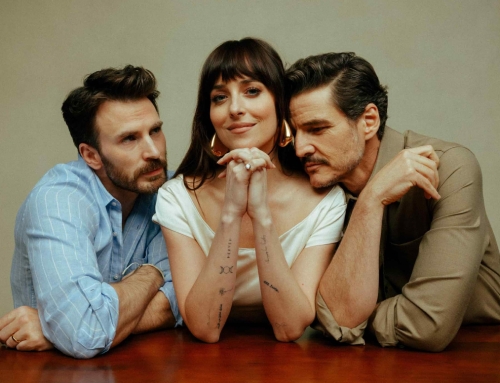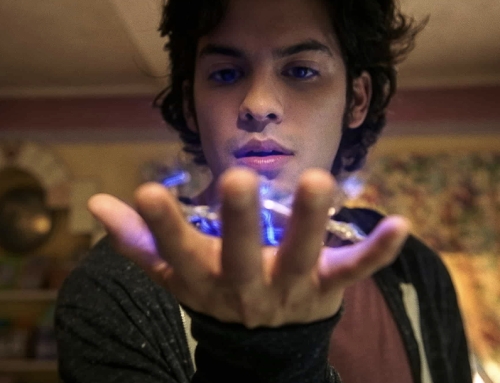Uncut Gems
“Everything I do is not going right.”
So sobs Howard, the adrenaline-junkie diamond dealer gambling addict played by Adam Sandler in “Uncut Gems.” Taking place over the course of a couple of days, “Uncut Gems,” directed by Josh and Benny Safdie, hurtles along a narrow track over a yawning abyss, following Howard as he attempts to pay down his huge gambling debts by, of course, placing increasingly risky bets. There’s the hope that once he pays it all off, he’ll wipe the slate clean, and repair some of the bridges he’s burned. But everyone around Howard knows this is a fantasy. His addiction is too entrenched. The dazzle of the “uncut gems” in the title is not a surface shine. It glows at the center of the earth, it burns in Howard’s core. It makes sense, then, that “Uncut Gems” would start with a sequence where the camera goes inside a black opal (dug out of the Welo opal mines in northern Ethiopia) which then morphs into the inside a human colon. The colon of Howard, to be exact, as he endures a colonoscopy. The images on the hospital monitor look similar to the fantastical space of the opal’s innards, its curves and layers. This is metaphor writ so large it’s brazen, a theme hammered home with refreshing rhetorical candor. The opal is inside Howard, his need for it comes from the basest part of him. He lives in a state of “gold sickness” or “dragon sickness” (so vividly described by J.R.R. Tolkien in The Hobbit), the hypnotic power of gems luring men into madness since the beginning of time, seeking pirate’s gold, El Dorado, the Holy Grail, on doomed colonialist adventures. Howard’s black opal is the same as any long-besought gem: it emanates a magical pull on all who look upon it. Its power is almost wholly symbolic.
Co-written by the Safdies and regular collaborator Ronald Bronstein, “Uncut Gems” immerses you in Howard’s nutty cacophonous world. Howard’s jewelry shop in New York’s Diamond District is a tiny space with the atmosphere of a three-ring circus. The double entrance to his shop—requiring two buzzes—is a buffer between Howard and the world, giving him (at the most) 10 seconds lead time against anyone looking for him. His assistant Demany (LaKeith Stanfield) hustles clients who might be interested in the flashy items in Howard’s inventory, and the latest lure is Boston Celtics star Kevin Garnett (playing himself), waiting in the shop when Howard returns from the colonoscopy. Howard can’t resist showing Garnett his latest acquisition: the opal, just arrived from Ethiopia, which Howard is putting it up for auction later in the week (at a hugely inflated price). He tells Garnett about how he feels connected to the Ethiopian Jews who dig up the opals, and his enthusiasm is so passionate it’s catching. Garnett asks if he could borrow the opal for good luck at the upcoming Eastern Conference finals, and Howard says yes.
Howard saying “yes” is the first of the many, many terrible choices he makes over the next 135 minutes. He owes so much money that goons follow him around, showing up at his office. These people mean business. His wife (Idina Menzel) seethes with hatred for him. His daughter can barely tolerate him. He’s put up his young mistress (Julia Fox) in an apartment he’s rented for her. Howard is always on the go, always running out of rooms, racing down sidewalks, charging across lobbies.
And that’s the thing about addiction, the thing that “Uncut Gems” really understands. On some level, the stress is the point. The nerve endings are so frayed they need the stress. Howard is useless without panic. So is his mistress, who also suffers from a form of “gold sickness.” It is their main bond. This is not a “cautionary tale” about the dangers of gambling. It’s more like a virtual-reality game where you step into Howard’s experience.







